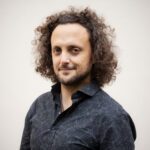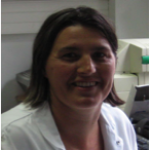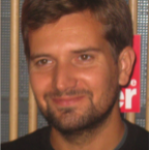Lien vers Pubmed [PMID] – 24594579
PLoS ONE 2014;9(3):e88600
Inherited and de novo genomic imbalances at chromosome 16p11.2 are associated with autism spectrum disorders (ASD), but the causative genes remain unknown. Among the genes located in this region, PRRT2 codes for a member of the synaptic SNARE complex that allows the release of synaptic vesicles. PRRT2 is a candidate gene for ASD since homozygote mutations are associated with intellectual disability and heterozygote mutations cause benign infantile seizures, paroxysmal dyskinesia, or hemiplegic migraine. Here, we explored the contribution of PRRT2 mutations in ASD by screening its coding part in a large sample of 1578 individuals including 431 individuals with ASD, 186 controls and 961 individuals from the human genome Diversity Panel. We detected 24 nonsynonymous variants, 1 frameshift (A217PfsX8) and 1 in-frame deletion of 6 bp (p.A361_P362del). The frameshift mutation was observed in a control with no history of neurological or psychiatric disorders. The p.A361_P362del was observed in two individuals with autism from sub-Saharan African origin. Overall, the frequency of PRRT2 deleterious variants was not different between individuals with ASD and controls. Remarkably, PRRT2 displays a highly significant excess of nonsynonymous (pN) vs synonymous (pS) mutations in Asia (pN/pS = 4.85) and Europe (pN/pS = 1.62) compared with Africa (pN/pS = 0.26; Asia vs Africa: P = 0.000087; Europe vs Africa P = 0.00035; Europe vs Asia P = P = 0.084). We also showed that whole genome amplification performed through rolling cycle amplification could artificially introduce the A217PfsX8 mutation indicating that this technology should not be performed prior to PRRT2 mutation screening. In summary, our results do not support a role for PRRT2 coding sequence variants in ASD, but provide an ascertainment of its genetic variability in worldwide populations that should help researchers and clinicians to better investigate the role of PRRT2 in human diseases.






